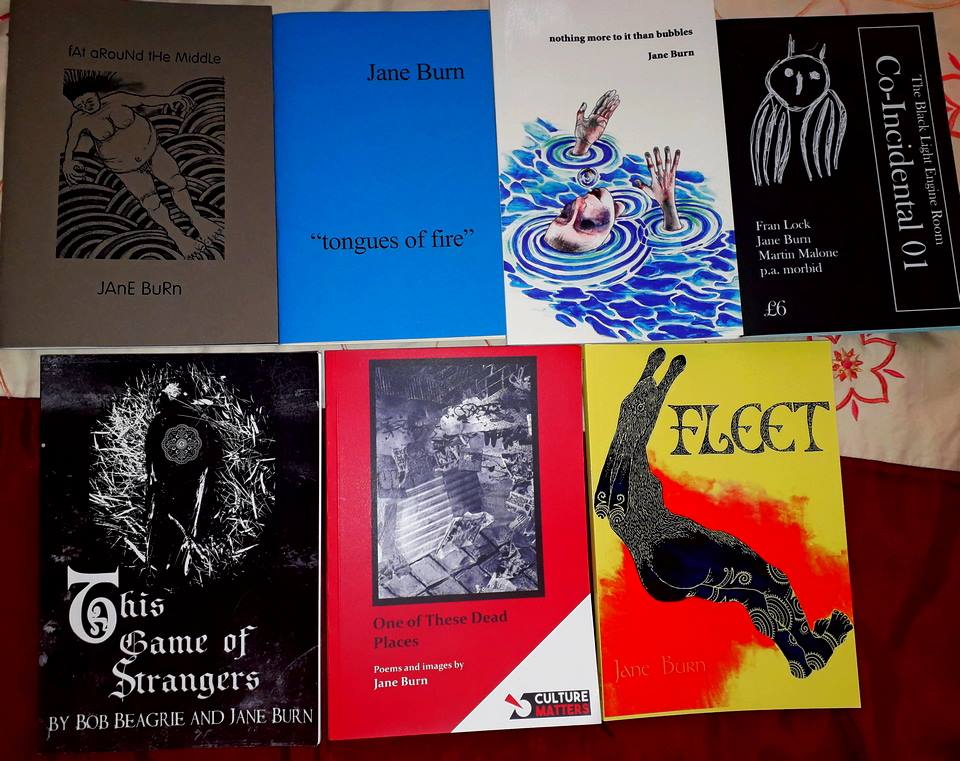
JANE BURN – POETRY AS HARD GRAFT, INSPIRATION, REACTION OR EXPERIMENT?
I interviewed poet & artist Jane Burn who won the Michael Marks Environmental Poet of the Year 2023-24 with A Thousand Miles from the Sea.
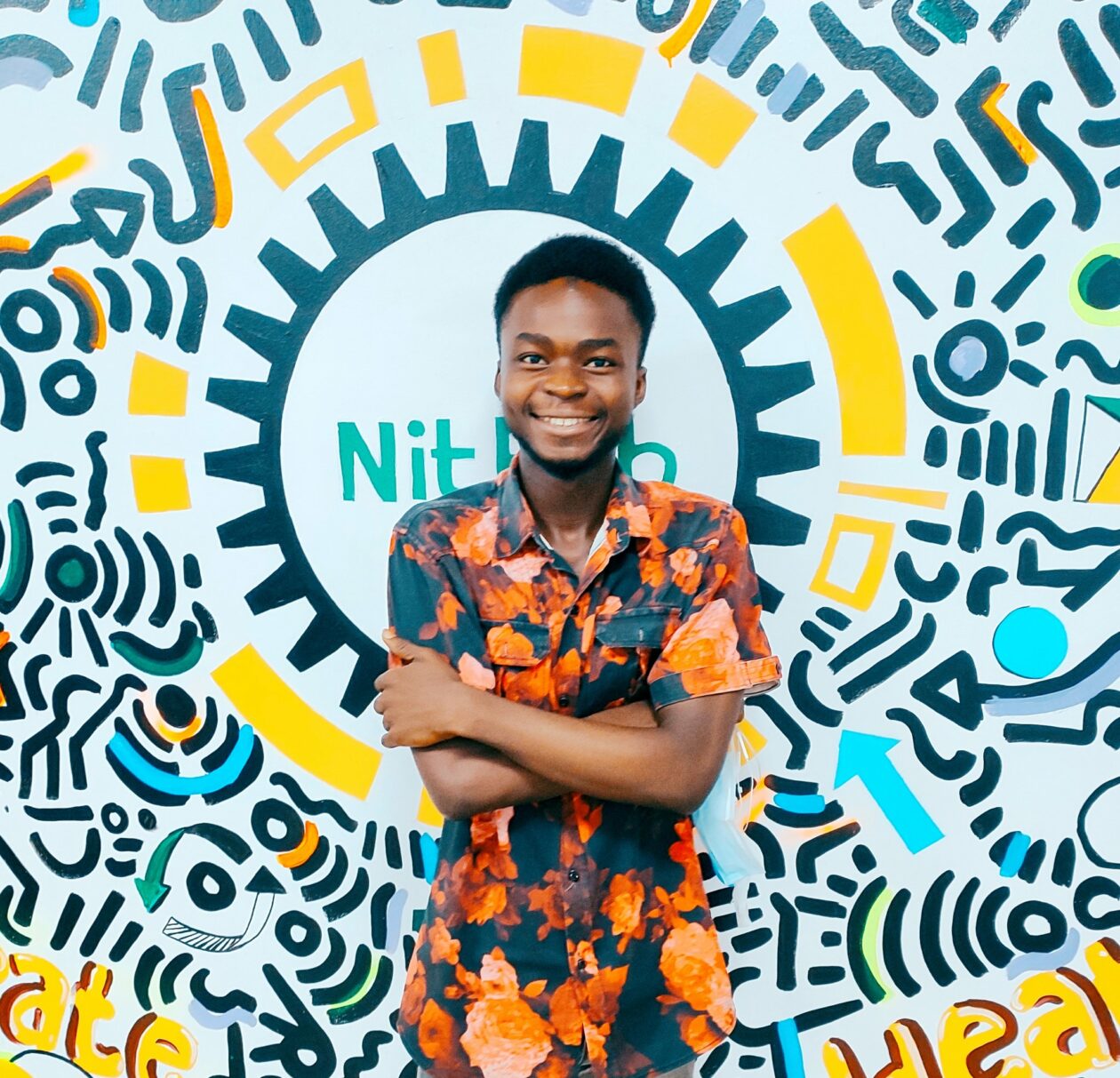
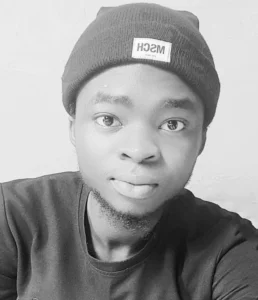
I interviewed poet and editor Olaitan Humble, who won the EW Poetry Prize’s People Choice Award and has been nominated for the Rhysling Award, Pushcart Prize and Best of the Net Award. Currently studying at the University of Lagos, Olaitan was on the editorial board at Lumiere Review and Bandit Fiction and is now the editor of The Press Club, University of Lagos . His writing has appeared in FIYAH, HOAX, HOBART, North Dakota Quarterly, Superstition Review, Chiron Review, Ethel Zine, and Luna Luna Magazine.
Leslie: If I read a collection of your poems what would be the most common themes I’d find, and how would you be treating them?
Olaitan: The heart of a poetry collection of mine would revolve around paternal love and I would treat elements of this theme in relation to my father’s demise. Basically, this theme is almost always conspicuous in my poems. it’s natural that anything I write possesses some undertone of my personal realities. One way or the other, these realities find a way to crawl into one’s creative process, into one’s subconscious.
A distinct characteristic in my work lately is its potential to take a speculative turn. I write free verses and prose poetry which border on mysticism and a bit of spirituality, deities, and celestiality. Nostalgia is also one subject that I find very pleasing to explore. I treat most of my works with a first-person point of view, even if I may not necessarily be writing in first person.
Though I have a certain bias towards nature’s physicality, I’m often fascinated by abstractions such as Hilbert space, Klein bottle, Penrose stairs, etc. and are usually contained as undercurrents in my works.
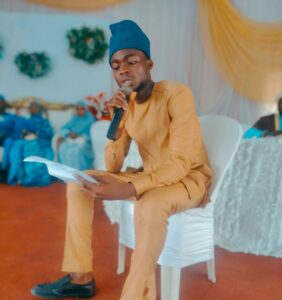
Leslie: Can you describe the process of writing a poem from start to finish, please? How does it begin, grow and develop? What are the quirks/rituals//habits that help you ‘get them best out of yourself’ as a writer?
Olaitan: While most of my poems constitute a body of work touching on life and its vicissitudes, it took me quite some time to understand my thought process to begin a poem. The line between writing and finishing a good poem is a thin one. For me, the most important part is starting a poem. This has proven to be a huge challenge for me most of the time. My writing style does not follow a specific pattern. The moment I recognized that I did not do a great job at plotting, the happier I became.
I just let my poems come to be. I let them happen as I go through life. Although it is unrealistic to say my poems occur to me spontaneously, that is also not far from the truth.
Now, over to the bits I do. I begin my writing process with a one-liner. This, I learned at a virtual poetry workshop I attended late 2019. Through multiple one-liners, I create a chain of thoughts, coherent thoughts which soon usually take form to become powerful lines of poetry upon further development. One other thing I’ve noticed is the personal importance of getting hold of my will to write.
Leslie: How has your personal background formed and shaped you as a poet?
Olaitan: Well, I am a Black African creative from Nigeria and I must say, my background has undoubtedly shaped my writing. Many times, I couldn’t write a few lines of poetry without the influence of my immediate environment and reality getting in the way. And each reference I make, I believe, makes me true to the culture. I have read multiple claims on Twitter how African poets embrace and romance grief. It is not an insincere attempt to sell their stories. It is in fact their reality.
Lived experiences here have forged my writing into a mix of bliss and hiss. I like to address police brutality because it is a morass that eats deep through my country of residence.

Leslie: Can you describe the causes you take action for, please. What are the most creative aspects of your involvement?
Olaitan: In Nigeria, issues stemming from bad governance, police brutality and even insecurity, are prevalent enough to demand one’s activism. Gender bias and girl-child rights advocacy are also among causes which I take actions for. I have volunteered for nonprofit organisations that are proponents of these rights, some of which include Women Empowerment Legal Aid (WELA) and Vibrant Girls Development Initiative (VGDI). In 2020, I wrote poems supporting the #ENDSARS movement to combat the prevalence of crimes against humanity committed by the police. Most of the time, I lend my voice through my writing—whether literary or journalistic.
Leslie: What would you say are the most important lessons you’ve learned from studying at university?
Olaitan: Life in the university has taught me personal effectiveness and time management. Though I am currently enrolled in a program in the sciences and technology career path, owing to my multidisciplinary nature, I take bits from other fields of social sciences and humanities. From this, I have learned how to become an all-round student of learning.
When life gets in the way, and by this I mean academics majorly, I do not shut down my inherent creative process, rather I recede into myself reasserting my purpose of writing.
I remember my experience participating in Decameron Writing Series in March 2021. It ran for 3 weeks, 2 among which were over my semester examination period. I was mentally drained and exhausted from reading for academic examinations and fulfilling my writing exercises. However, this strenuous process, and many others have contributed to my flexibility as a person. Need I add that I had some of the best results that semester, winks.
Leslie: What have you learned about effective and less effective writing in your work as an editor?
Olaitan: I have been on the masthead and editorial board of about 5 literary and journalistic publications. I am of the opinion that every piece of writing has its own audience, regardless of how minor they may be. I also feel that the likelihood of a writing to have an impact largely depends on context, coherence, clarity, and currency.
Leslie: Would you like to offer the readers a poem of yours?
Olaitan: This poem is a personal one which I wrote during 2020 yuletide. It is published in NINSHAR ARTS.
Winter
After Tanaya Winder
Forgive me! I draw
portraits of Faust as Christ. I seek
salvation from the reaper’s grip,
maybe, just maybe I could escape father’s wrath.
Father enjoys Gregorian Chants.
He often mistakes my silence for disbelief. My eyes
often promise faith. The skies tonight
promise snowfall. The canorous echoes of combustibles
clapping in the chimney corner promise
warmth. Winter is here. I am still waiting to be found.
The sight of moka pots
forces me to bed. I grow an assortment of tingles
in my belly. Forgive me!
I still draw portraits of Faust as Christ.
Next week I interview Sarah Hehir who scripts The Archers and BBC Doctors.
ABOUT LESLIE TATE’S BOOKS:

I interviewed poet & artist Jane Burn who won the Michael Marks Environmental Poet of the Year 2023-24 with A Thousand Miles from the Sea.
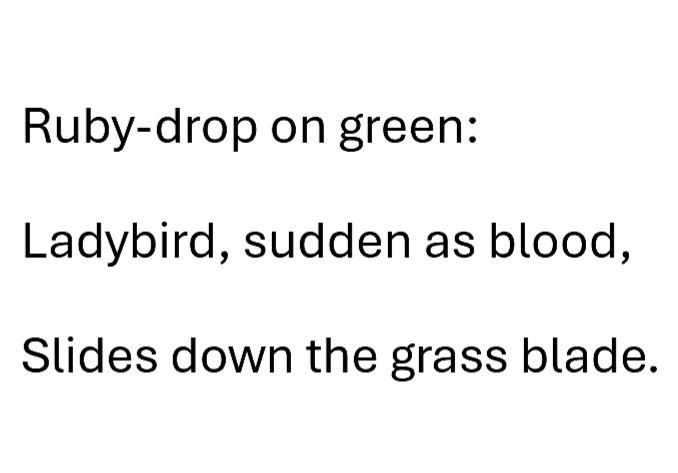
I interviewed ex-broadcaster and poet Polly Oliver about oral and visual poetry, her compositional methods, and learning the Welsh language. Polly says, “I absolutely love
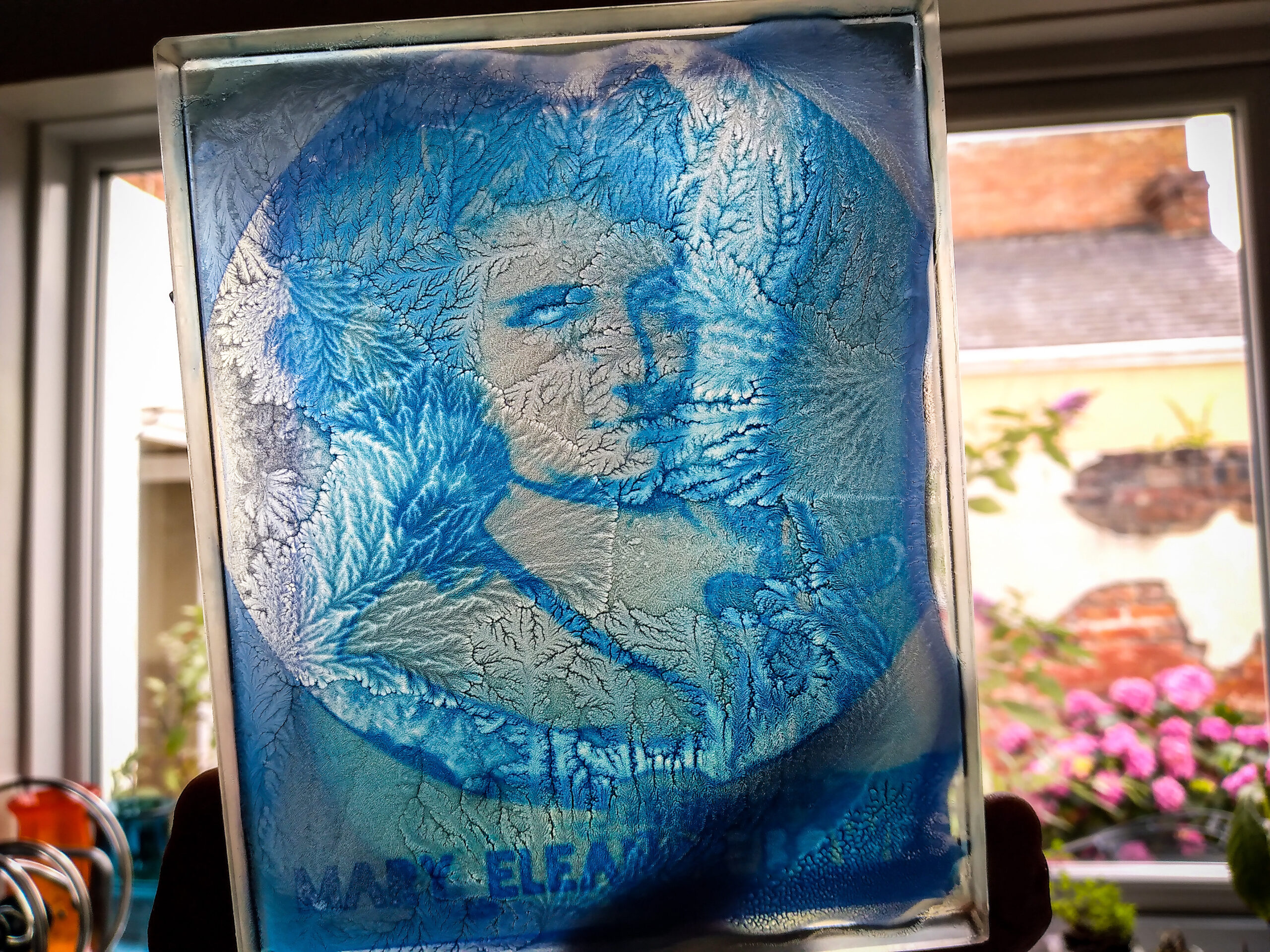
I interviewed Jo Howell who says about herself: “I’ve been a professional photographic artist since I left Uni in 2009. I am a cyanotype specialist.
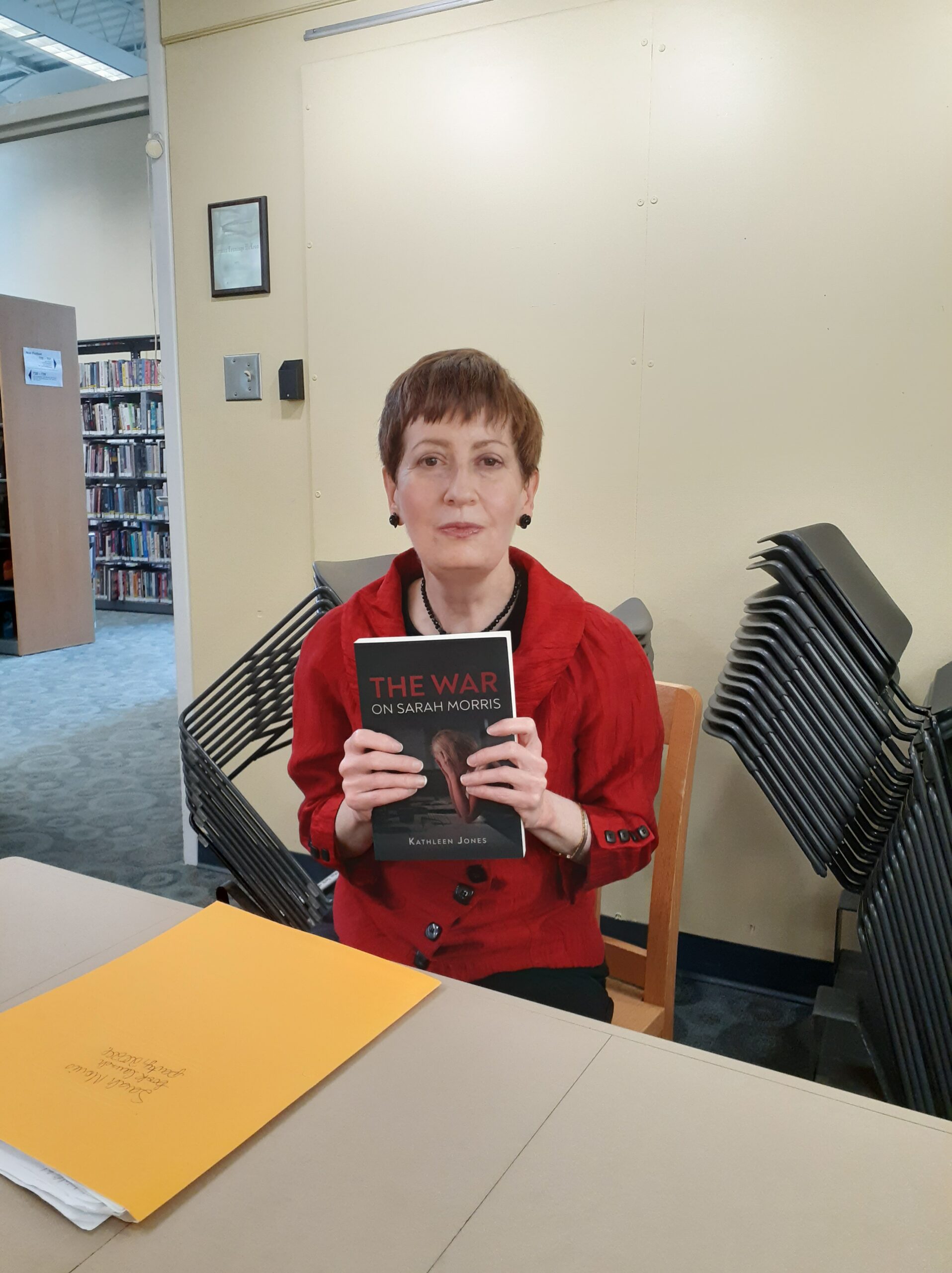
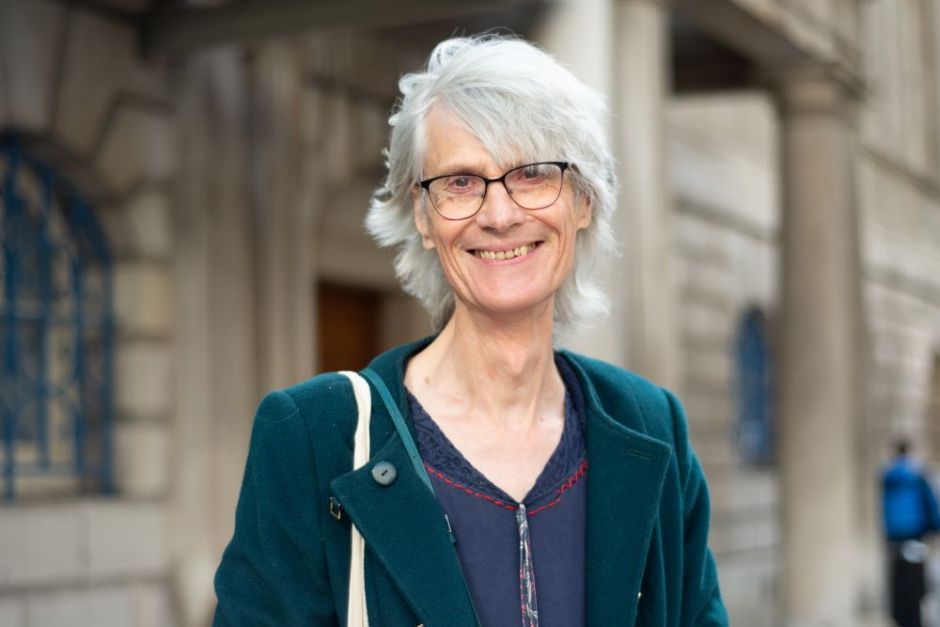
Poet Tracey Rhys, writer of Teaching a Bird to Sing and winner of the Poetry Archive’s video competition reviews Ways To Be Equally Human. Tracey,
| Cookie | Duration | Description |
|---|---|---|
| cookielawinfo-checkbox-analytics | 11 months | This cookie is set by GDPR Cookie Consent plugin. The cookie is used to store the user consent for the cookies in the category "Analytics". |
| cookielawinfo-checkbox-functional | 11 months | The cookie is set by GDPR cookie consent to record the user consent for the cookies in the category "Functional". |
| cookielawinfo-checkbox-necessary | 11 months | This cookie is set by GDPR Cookie Consent plugin. The cookies is used to store the user consent for the cookies in the category "Necessary". |
| cookielawinfo-checkbox-others | 11 months | This cookie is set by GDPR Cookie Consent plugin. The cookie is used to store the user consent for the cookies in the category "Other. |
| cookielawinfo-checkbox-performance | 11 months | This cookie is set by GDPR Cookie Consent plugin. The cookie is used to store the user consent for the cookies in the category "Performance". |
| viewed_cookie_policy | 11 months | The cookie is set by the GDPR Cookie Consent plugin and is used to store whether or not user has consented to the use of cookies. It does not store any personal data. |
2 responses
I’m a fan of olaitan humble 😌 I love his article and poems.am looking forward to read his recent poem Humble.
Olaitan Humble is so good